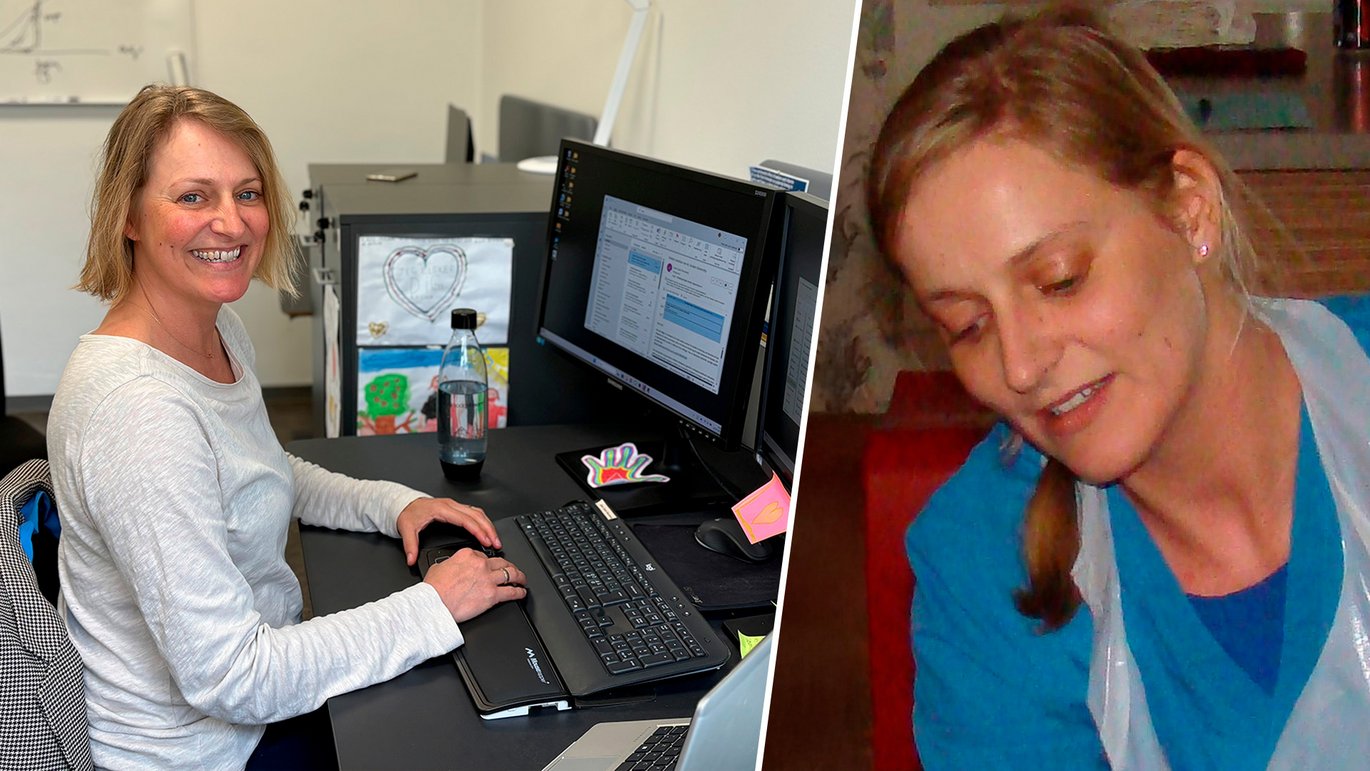Anne Gaml-Sørensen: “It’s rough for sure, not knowing how long it’s going to last”
There are still bumps and dead ends on the academic career path when it comes to gender equality, diversity and inclusion. Here Anne Gaml-Sørensen, a postdoc at the Department of Public Health, shares her take on what it’s like navigating life within academia.

WHO’S WHO
Name: Anne Gaml-Sørensen
Title and affiliation: Postdoc at the Department of Public Health
Research area: Reproductive epidemiology
Background: BSc in molecular biology from Aarhus University, BSc in midwifery from University College Nordjylland, MSc in health science from Aarhus University and PhD in public health from the Department of Public Health.
Age: 44
Family life: Lives in Viby J. (an Aarhus suburb) with her wife Mette, who is degree programme director at Mercantec in Viborg. They have two children: eleven-year-old Kalle and eight-year-old Ellen.
ABOUT THE SERIES
The inspiration for this series of articles comes from the Committee for Gender Equity at Health, and is intended to spotlight the career opportunities and challenges junior researchers in particular face in their day-to-day working lives at the faculty.
Each article gives you a glimpse of what working at Health is like for researchers at different career stages and across all of our departments.
In 2023, we focused on work-life balance, and since 2024, we’ve been focusing on the theme of diversity, gender equity and inclusion.
There’s a link to all of the previous articles in the series under this article.
I was kind of like a bull in a china shop when I became part of the academic world. When I was a MSc student I was invited to a PhD defence, and I turned up empty-handed, no gift or anything. I didn’t know the codes in academia, but then where would I know them from? No one in my family had ever gone to university, so this was completely alien territory for me.
When I joined the department, there were basically only doctors in my research group. Fortunately, Cecilia Ramlau-Hansen was the head of our research group. She has the same educational background as me and is a powerful role model. I’ve leaned on her along the way. Now the group is a lot more heterogeneous, and the researchers come from different fields, so now there are more of us who aren’t doctors, and I’m not the only one who doesn’t know what KBU means. (ed: KBU, klinisk basisuddannelse for læger. The first step in postgraduate medical training for newly qualified doctors.) It’s really nice.
I’m still a junior researcher, even though I’m a little older than the other people at this stage of my career. The best thing about being a postdoc is the freedom. I can choose what to focus on and what not to. Define what’s important to do in the long term and from week to week. Decide which studies I want to build on, or whether I want to go in a different direction. And if a computer or a graph is giving me trouble, I ask my younger colleagues for help.
The environment we work in is kind of special. After all, we want the same positions, and colleagues come and go. My parents were teachers at the same school. They had the same colleagues for 40 years, they became friends, socialised in the break room and went on holidays together. Sometimes I do think that’s something I might like for myself. The university is a much more dynamic workplace, and that’s also really good.
I’m enough of a feminist for equality to be on my agenda, but gender balance isn’t that much of an issue in my workplace on an everyday level. Maybe because I work in a unit with a lot of women? It’s either really not a problem for our group, or I have some blind spots because of our homogeneity.
It’s hard to get funding for research into women’s health issues. Pregnancy, menopause, endometriosis. I'm part of the BIOSFER project. Most of us are women researchers who work on reproduction. Some times it seems as if researchers get money to do research on all the health problems middle-aged white men can have. And that’s where I see some problems and distortions at a structural level.
It’s constantly at the back of my mind that I should do more work abroad if I want a permanent contract. A lot of the external funding I can apply for includes a year of research abroad. But I don’t want to be away from my family for that long. My family went with me when I did a research stay at UCLA for three months during my PhD. It was great, but that’s unfortunately no longer possible for us. Shorter trips, international conferences and so on, that’s fine.
It’s rough for sure, not knowing what I’m going to do next and how long it will last. My plan is definitely a permanent contract. But a plan B may be necessary. I’m incredibly satisfied with where I’ve landed and what I do. It’s perfect for me, so I’m sure I’ll find a way. It will work out.
Contact
Postdoc Anne Gaml-Sørensen
Aarhus University, Department of Public Health
Phone: 4086 8183
Mail: ags@ph.au.dk